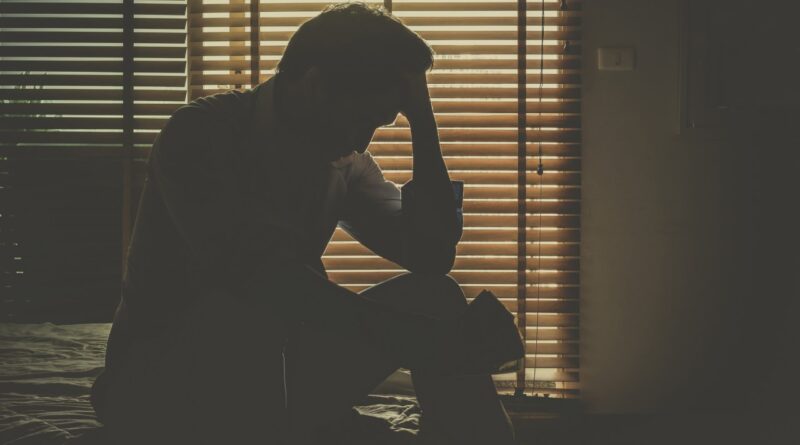Hidden mental health impacts of severe weather: from hurricanes to hurricanes
LOUISIANA (KTAL/KMSS) – Some studies have shown that extreme and extreme weather can negatively affect mental health.
A study from the American Public Health Association found that climate change can cause and increase anxiety, which will negatively affect mental health. Whether it’s hot weather, typhoons, hurricanes or floods, extreme weather can be more harmful to a person’s mental and emotional health than physical stress.
Most studies related to the effects of severe or extreme weather have focused on what people experience physically. This can include storm damage, personal injury and death.
Extreme weather is common in the United States and Louisiana is used to experiencing extreme weather such as hurricanes, floods, tornadoes and extreme heat. Experiencing extreme or severe weather can be overwhelming, stressful and anxiety-inducing.
One study shows that after Hurricane Katrina, residents reported symptoms of anger, anxiety and intense feelings of stress and early symptoms of PTSD. The same study shows that similar symptoms, as well as depression were found after the Exxon Valdez oil spill in 1989.
Extreme weather events can often pollute water and soil in their destructive path. This can cause illness in the population. Contaminated water, such as the water crisis in Flint, Michigan, has caused a link between stress, anxiety and depression. When your access to clean, potable water is difficult or non-existent, it can be very stressful. Access to water is part of your basic physical needs as a human being.
A 2023 study in the Water Research Journal found that “inadequate drinking water services threaten the mental health of users in a number of ways. The stress caused by the lack of safe water has been recognized in advance. as one of the most important factors, but the inequality related to water service was surprisingly important.”
More studies need to be done to further analyze the adverse effects of climate and lack of access to clean drinking water on human mental health. As scientists, psychologists and experts conduct research on mental health and extreme weather conditions, more information will be available to people experiencing changes in their mental health.
As climate change continues, studies show that there is a greater risk of severe storms in the future in a warmer future. Spring and summer see a decrease in the number of EF1+ tornadoes while fall and winter see a slight increase in the number of tornadoes in the United States.
The University of Nebraska Medical Center conducted a study examining the effects of hurricane exposure on suicide rates. The number of people who commit suicide has been increasing in the United States for the past few years. As of 2020, suicide was the 12th leading cause of death in the country.
A meta-analysis conducted by Beaglehole, showed that the rates of stress, problems, depression and post-traumatic stress increase after a disaster or extreme weather. Between a third and a half of those affected by extreme weather will develop some form of post-disaster stress.
Those of us in the southeast have seen a lot of hurricanes over the past few years. It has been found that the first “tornado alley” has moved from the American West to the Southeast. Cyclones that usually hit the Southwest do not hit the Southeast the same way. Tornadoes in southern countries can occur at any time of the day or night. Making the chances of nighttime tornadoes increase.
Storms that occur at night can increase anxiety and fear. People may not know that an overnight tornado has been strong until it is too late.
Residents of Southeast countries do not have the opportunity to prepare adequately, which leads to a high number of casualties. These ongoing changes in storm activity put communities at risk of severe damage, putting survivors at risk of developing mental illness symptoms and suicidal behavior.
Jessica Lowder
University of Nebraska Medical Center
The results of the study showed that almost every group had increased suicide rates during the year in which the hurricanes occurred. At the same time, the study showed that there is an associated risk of suicidal thoughts after experiencing a hurricane.
Hurricanes, tornadoes and floods are not the only adverse weather events that can negatively affect mental health. An increase in hot weather is linked to an increase in drug use and mental health issues.
An August 2021 study by Environment International shows a 2.2 percent increase in mental health-related deaths when temperatures rise by 1.8 degrees Fahrenheit. A meta-analysis found that the problem will increase as global warming continues.
Climate change has brought about many changes in weather patterns around the world. People living in the Southeastern United States are likely to continue to see an increase in heat waves, hurricanes, tornadoes and other severe weather events.
It’s important to take care of your mental health, but it’s even more important to take care of your mental health during severe weather. There are ways to cope with the weather or depression after a dangerous storm.
Find a therapist who can help you gain coping skills. Make a safety plan for severe weather. Use your radio stations to keep up to date with the weather.
Severe weather can be scary and stressful, nothing will take away every fear you may have during those times. But you can be prepared and have a plan to get you through the tough times.
#Hidden #mental #health #impacts #severe #weather #hurricanes #hurricanes
